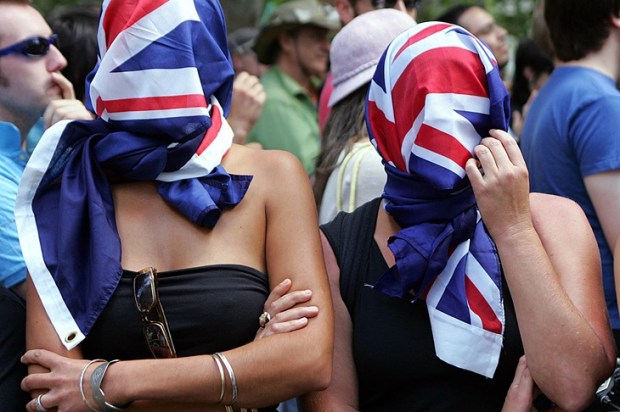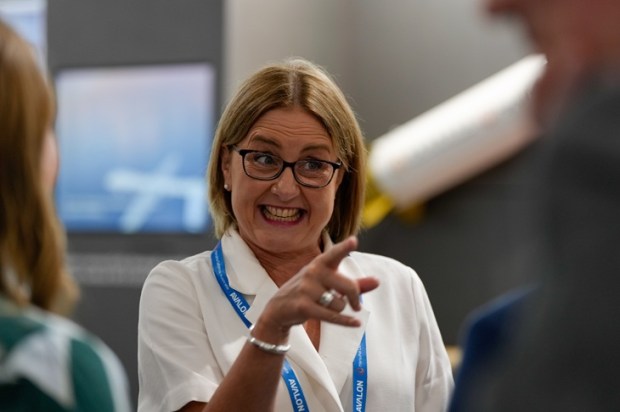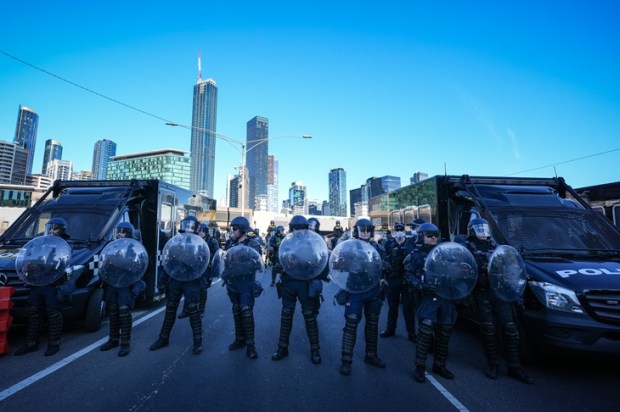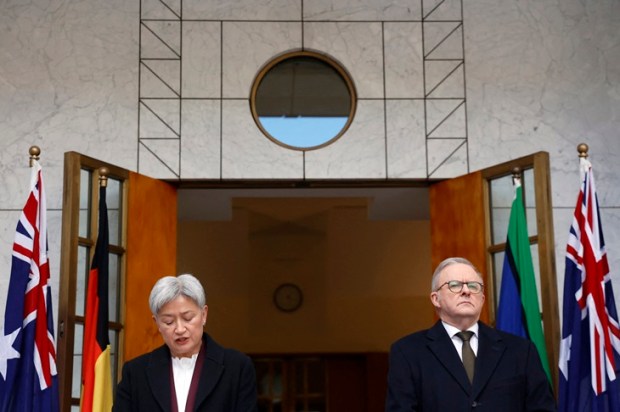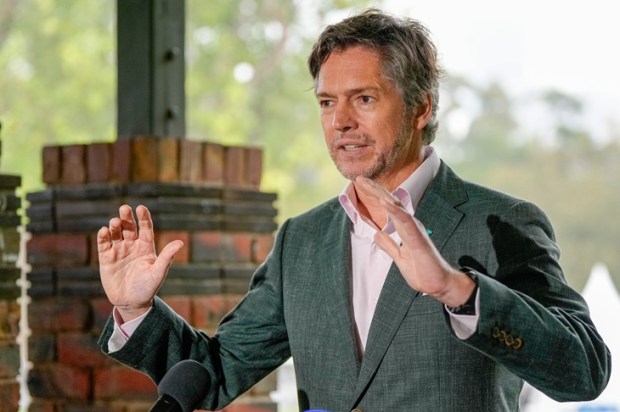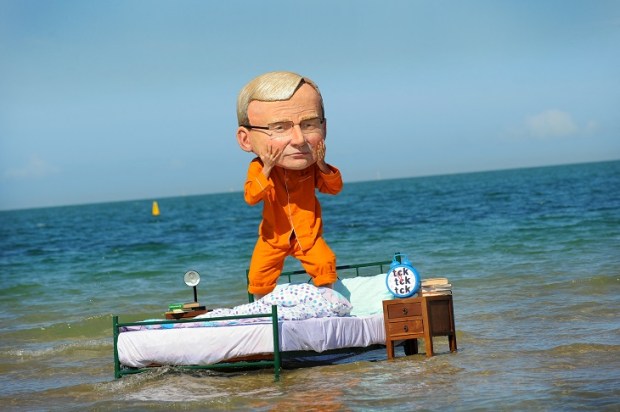The outrage at the Coutts/NatWest debanking scandal in the United Kingdom does not align with the complete disinterest in Canadian Prime Minister Justin Trudeau’s debanking of an entire political caste.
It was entirely appropriate for people to express their horror upon discovering banks were routinely passing moral judgment on the politics of their customers. It was correct for the British government to panic and swear to fix the problem (even though they low-key endorsed ESG practices for years). If restrictions are placed on banks in the future, especially relating to their licences, this will mark progress in the protection of citizen rights.
Banking, it has been argued in the halls of Parliament and in the pages of major publications, is a human right in the modern world. Debanking, it follows, should be seen as an abuse of those fundamental rights. Even left-wing publications have tried to cash-in on the clicks, pretending to care.
When the heads of Coutts and NatWest were mounted on Nigel Farage’s desk, it was a victory for common sense. Their demise restored some confidence in the banking sector because the public felt as though they were protected, with politicians in the process of doing something to shore up their rights. No doubt Farage will be there, prodding both sides with a pitchfork until they deliver.
Unfortunately, it is clear UK Parliamentarians only cared about the Farage debanking scandal because they could see themselves suffering the same fate when they’re voted out of office – which is likely to be soon. At the mercy of a Labour government, Tory MPs know there is little to bugger all chance a left-wing, social justice worshipping, censorial, Big State leadership lifting a finger to stop their opposition being targeted by political debanking. Labour might even encourage it, if they thought it would play well in the polls.
When the Tories stood shoulder-to-shoulder with Farage, they did so for selfish reasons.
This goes a long way to explaining why those same MPs – who now make grand speeches about the human rights of banking – said nothing and did nothing during the Covid years when their fellow Commonwealth nation, Canada, debanked citizens as punishment for protesting against the government.
No one expected the UK, US, New Zealand, or Australia to declare war on Canada – but a few sharp words wouldn’t have gone astray. They flow freely enough when Australia is being scorned for its coal and gas or when a Pacific nation wants to extort climate money out of a warm Summer day. When it comes to the behaviour of governments, this collection of nations is meant to form the foundation of the free world. One could assume our darling Prime Ministers and Presidents might voice their opinion regarding the abuse of citizens in the same way they stand at the United Nations and (rightly) complain about ethnic slave camps in China. If there was ever a time for the Royal Family to speak up – the abuse of human rights of their subjects would have been a valid cause.
Justin Trudeau’s actions were a lot worse than the UK debanking scandal.
In early 2022, he vowed to freeze the bank accounts of those involved in the freedom rallies, that is people who objected to vaccine mandates, robbing them of their ability to work. Trudeau decided to use Canada’s Emergencies Act to freeze people’s accounts without – astonishingly – the need for a court order.
Canada ‘broadened Terrorist Financing rules’ so that they could also suspend crowdfunding campaigns and cryptocurrency donations saying, ‘It’s all about following the money.’
‘This is about keeping Canadians safe, protecting people’s jobs,’ said the Prime Minister, after effectively causing thousands of Canadians to choose between their jobs and a vaccine with a dodgy safety record. Medical privacy? That was so last century.
Despite supporting protests in other countries, such as India, Trudeau had no such patience for the protesters attracting bad press to his regime. Every day the freedom rally stood in the capital was another day Trudeau had to defend his vaccine mandate policy against accusations of human rights abuses.
Giving police excessive powers to attack the finances of those attending a peaceful protest shocked many and yet the silence from leaderships around the world fell heavy on the air. Only the pages of the truly independent press were screeching. The silence from the political class is understandable. It happened during a time when every Western government was engaged in the abuse of human and civil rights through various emergency powers and health orders. None of our leaders broke ranks, observing the ‘don’t throw stones in a glass house’ ideology. The press are the ones who should have been pelting rocks at these glass houses, but they kept quiet because they too had threatened their staff with mandates or taken vast sums of money from Big Pharma. If citizens tried to speak on social media, they were erased from platforms that were making a killing in pharmaceutical ad revenue.
The threats from Canada’s police force continued for many weeks, with the acting police chief saying that they would work for months to hunt down protesters. ‘If you are involved in this protest, we will actively look to identify you and follow up with financial sanctions and criminal charges.’
Let’s remember that the protesters were camped in Ottawa because the Prime Minister had used his powers to make unreasonable demands that violated the public’s medical rights. People were losing their homes, jobs, and families. Trudeau’s response to the protest should have been to realise that he’d made a mistake and overstepped his power – instead he punished citizens for challenging his will.
Canadian banks should have staged a protest of their own against the government when they were asked to hunt down citizens. They did not. Banks expressed their surprise – complained about how much work it would take to track down the people on Trudeau’s list – but ultimately obeyed the request knowing that the Emergency Order protected the banks from lawsuits. In doing so, they set a precedent. Political disagreement was now a valid reason to freeze someone’s assets.
‘The censorship of money is something we see in an authoritarian country, not one like Canada. Regardless of my views on the protests, freezing accounts for political reasons is a big, big slippery slope,’ said a senior consultant at a crypto fund.
Trudeau may have gotten away with labelling his citizens as domestic terrorists, racists, extremists, and misogynists whilst doing some terrorising of his own, but with every day that passes, his actions appear more unhinged. Covid was not the emergency it was made out to be and Covid vaccines are coming under increasing scrutiny for injuring and killing otherwise healthy people. The freedom protesters had a perfectly valid reason to stand in the freezing cold and demand their rights. What’s Trudeau’s argument? Fundamentally, he was in the wrong.
Western leaders are supposed to keep each other in check, but UK Prime Minister Boris Johnson said little, if anything, on the topic when Trudeau visited the UK. This is the same UK government that mulled over banning former US President Donald Trump for ‘hate speech’.
As the Spectator wrote, ‘Nothing says “free country” like being able to freeze the assets of your political opponents without notice, judicial oversight, or possibility of legal recourse, on suspicion of having donated $25 to a trucker who parked in front of Canada’s Parliament because he didn’t want the government to take away his job.’
The Russia-Ukraine conflict provided a well-timed distraction for Trudeau to wind back his emergency declaration and then not talk about it for months. While Trudeau scolded Russia for her authoritarian behaviour, his dictatorial leanings had already eroded Canada’s democracy.
To this, Trudeau blamed social media for spreading ‘misinformation and disinformation’ which ‘turned the people against the values and principles of democracies’.
Would those principles include the right to a peaceful protest, Trudeau?
The then-Liberal leadership of Scott Morrison didn’t have to say anything. For some time the Liberals had been busy drafting the misinformation and disinformation bill which is now Labor’s pet project. It was under their watch that the state Premiers committed atrocities against the civil liberties of the Australian people – including the use of excessive police force, military intervention, and ruinous fines to coerce and terrify the population into compliance with a vaccine mandate that in and of itself violated the rules set out in the vaccine handbook. It’s no wonder that nothing was said to Trudeau.
Ardern’s New Zealand government and its declaration of being ‘the sole source of truth’ was likely cheering on their socialist-leaning mates. How dare the public defy the State!
Even if we accept that our gutless, power-hungry, unethical leaders were too frightened to speak about Trudeau’s debanking scandal when it happened – why aren’t we hearing anything said about it now in the wake of the Farage debanking fiasco?
Why haven’t we seen Prime Minister Anthony Albanese come out and put Australian banks on notice that they are not to play politics with the bank accounts of their customers? We know they embrace the same ESG philosophy that got their UK counterparts in trouble.
We’re spending hundreds of millions on a referendum to enshrine a racial bureaucracy into the Constitution – and not a single cent on fixing the overreaches of power that led to discrimination, injury, and death for people living today, not ghosts from hundreds of years ago.
It’s so easy to apologise for inherited racial guilt because our leaders know that deep down they are not guilty for what happened in the past. But you won’t see any of them with the guts to apologise for what they did or how they behaved in the last three years. That would mean confessing to real sins and begging forgiveness from real people who are not ready to forgive.
So no, our leaders don’t give a damn about banks using our finances to coerce the political narrative. They simply got a fright when they realised it could happen to them.
Flat White is written and edited by Alexandra Marshall


